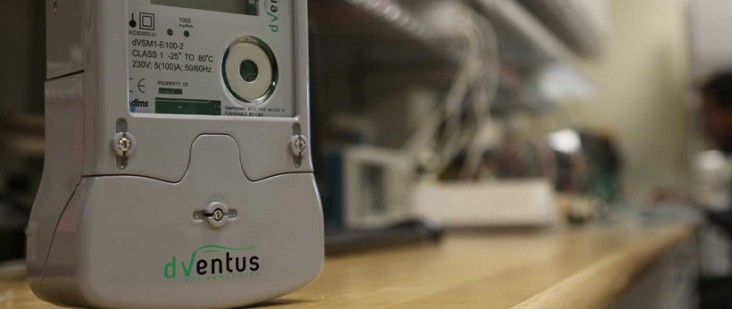- Where We Work
- Africa
- African Union
- Power Africa
- Trade and Investment
- Angola
- Benin
- Botswana
- Burkina Faso
- Burundi
- Cameroon
- Central Africa Regional
- Central African Republic
- Chad
- Côte d'Ivoire
- Democratic Republic of the Congo
- Djibouti
- East Africa Regional
- Eswatini
- Ethiopia
- Ghana
- Guinea
- Kenya
- Lesotho
- Liberia
- Madagascar
- Malawi
- Mali
- Mauritania
- Mozambique
- Namibia
- Niger
- Nigeria
- Republic of the Congo
- Rwanda
- Sahel Regional
- Senegal
- Sierra Leone
- Somalia
- South Africa
- South Sudan
- Southern Africa Regional
- Sudan
- Tanzania
- The Gambia
- Uganda
- West Africa Regional
- Zambia
- Zimbabwe
- Asia
- Europe and Eurasia
- Latin America and the Caribbean
- Middle East
- Mission Directory
Speeches Shim

Africa is a growing continent, with increasing demands for energy. Producing new, cleaner electricity to meet these demands is one thing; managing it efficiently is another. Are smart grids the solution? Power Africa is helping utilities and partner governments make informed decisions that can benefit countries and consumers alike.
In Ethiopia, for example, a desire to modernize the national energy system has led the Ethiopian Electric Utility (EEU) to experiment with smart meter pilot programs as a potential precursor to smart grid implementation. To advance these efforts, Power Africa and the United States Energy Association (USEA) conducted a two-day workshop on best practices in smart grid management and metering for utility executives and energy ministry officials.
At the workshop, held in Addis Ababa in March 2016, Daniel Gizaw of Power Africa partner dVentus Technologies provided an overview of smart grid architecture and available smart meters. Currently, dVentus offers smart meters with communication and data management capabilities. These meters can indicate the quality of the power factor and voltage, which is a step beyond what simple meter or server can perform. According to Gizaw, smart meters are a sound business decision in Ethiopia, as in ten years EEU could add $700 million in income simply by decreasing electricity losses. The dVentus meter, manufactured in Ethiopia, works with backend systems from other manufacturers and would allow EEU to conduct regular energy audits to detect tampering or other discrepancies.
When smart meters were installed in South Africa, some municipalities increased their revenue by 10% by discovering locations that were un-metered or had defective meters, allowing for correction of customers who were on the wrong tariff, and identifying customers that were bypassing the meter and stealing power. With such high losses, smart meters would allow EEU to focus on the biggest technical losses first and take steps to mitigate them, which would make a big impact on the bottom line. Another presenter at the workshop, Udayan Ganguly of the Indian electric utility CESC, specified how unbalancing is a huge part of losses and that smart meters can analyze changing load profiles to determine what the technical losses are.
Smart prepaid meters would improve the overall customer experience by allowing customers to access information regarding their electricity usage and be alerted when they approach their limit. Additionally, as Ethiopia scales up electricity demand over the coming decade, data management will be increasingly important for EEU—a full smart metering system would give the utility the data they need to improve and expand service.
However, participants at the Power Africa/USEA workshop also discussed drawbacks of smart metering, and even of more traditional prepaid metering. Both traditional prepaid meters and prepaid smart meters can present technical challenges. With a traditional prepaid system, any changes need to be made at the meter—such as tariff management, connection and disconnection, as well as modifications of thresholds or emergency credits. Additionally, a traditional (Standard Transfer Specification, or STS) prepaid metering system does not allow for tamper detection or postpaid metering. While a smart prepaid system can help alleviate some of these issues there are still a few technical challenges—such as difficulty with meter communication, system and data management, as well as security challenges.
Many of the challenges discussed would hamper EEU’s ability to decrease system losses as the utility wouldn’t be able to disconnect a meter remotely, the units can be cost-intensive in terms of labor, and there are no tamper detection or alerts on prepaid like there are on smart meters. Prepaid meters also cannot have multi-tariff billing and it is very difficult to change the tariff on them. From the consumer perspective, payments must be made through partnering retailers, which can be inconvenient.
Still, Mr. Ganguly of CESC stressed that EEU must look ahead fifteen years or more. Smart meters generate a lot of inputs and data, and whatever costs are incurred are outweighed by the benefits.
The key takeaway of the workshop—for the Ethiopian environment and beyond—was that utilities should create a framework first and consider how smart meters can and will be beneficial. From there, the goals and objectives of smart meter installation, and the overarching smart grid, will come into focus.
A version of this story was originally published by USEA.

Comment
Make a general inquiry or suggest an improvement.